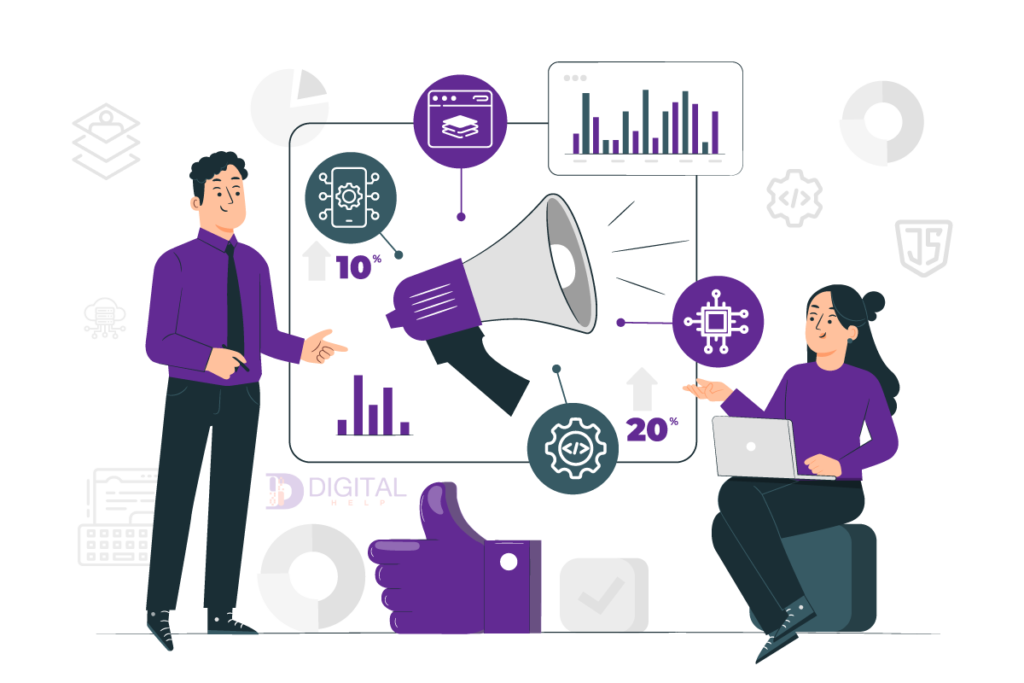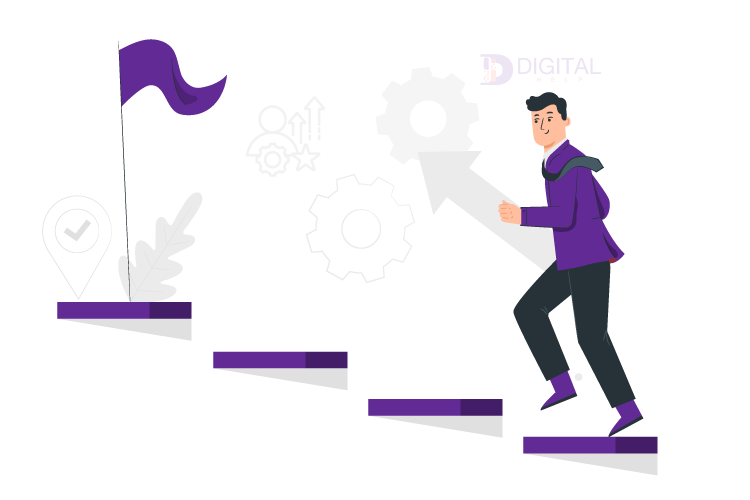
Software Development Services
Software development is the process of organizing, creating, testing, and managing different software applications. It entails applying the concepts and methods from mathematical analysis, engineering, and computer science. The goal of software development is to provide dependable, user-friendly, and effective software development services.
Digital help company makes sure to offer concrete software development solutions. Using the latest trends and technologies, our company offers a wide range of services, from their creation and design to testing, implementation, and support.
If you need the development of specific applications, integration of new applications with the already existing ones, or if your business needs applications based on the newest technologies, Digital help is ready to offer highly qualified services supported by customer service.
Types of Software Development
This includes designing the user interface, usually the graphical user interface of a web application, as well as coding the functionality of a web application.
The production of applications that are developed to be used on mobile gadgets like smart phones and tablets.
Refers to the development of software that will be operated on particular hardware, which includes microcontrollers and embedded processors.
Refers to the development of applications that provide cloud storage.
Refers to the creation of programs that are compatible with these operating systems and many others.


Benefits of Software Development
The users and data become accessible, software systems can grow, or after redesigns, they might add new features.
Having a dedicated software development team means that you do not have to spend a lot of money training your current team.
Custom software can enhance the satisfaction of the customer due to the alignment of its friendly interface and smooth integration.
By using custom software, it’s possible to optimize internal activity which consequently accelerates and sharpens your processes.
Software development allows teams to quickly adapt to changing requirements, priorities, or market conditions.
Software Development Techniques
Places a high value on its employees, teamwork, and customer satisfaction instead of the tools, focusing on the working software. Agile projects manage change and are steered by engaging with the client.
The process of software construction and implementation of information technologies in a single methodological approach.
A method that helps contain and narrow down the utilization of operational data by eliminating human personnel.
A process that will help in the automation of building, testing, and deployment of the software to reduce the risks of developing the software and deploying it inefficiently.


Role of Digital help in Software Development
Digital help is essential to the development of customized software solutions that meet certain company requirements. Our staff works closely with clients to comprehend their goals to make sure that every project is in line with them
Through the management of the complete development process, we concentrate on producing software that is high-quality, scalable, and effective. Digital help guarantees smooth solutions for your company growth..
Frequently Asked Questions
Software development is the process of planning, building, maintaining and altering software applications based on the principles of engineering, mathematics as well as computer studies.
Software development assists corporations in developing accurate and effective applications that increase client satisfaction and company performance while maintaining market sustainability.
Digital Help Ltd specializes in full-stack, mobile, backend/frontend, web, cloud computing and embedded systems development/application integration and support.
The benefits of implementing the model are scalability, cost-effectiveness, customer satisfaction and improvement of internal processes; flexibility to meet ever-changing market requirements.
Utilizing cutting-edge trends and technologies, Digital Help ltd provides customized, superior, scalable solutions that are in line with customer objectives and backed by first-rate customer support.



